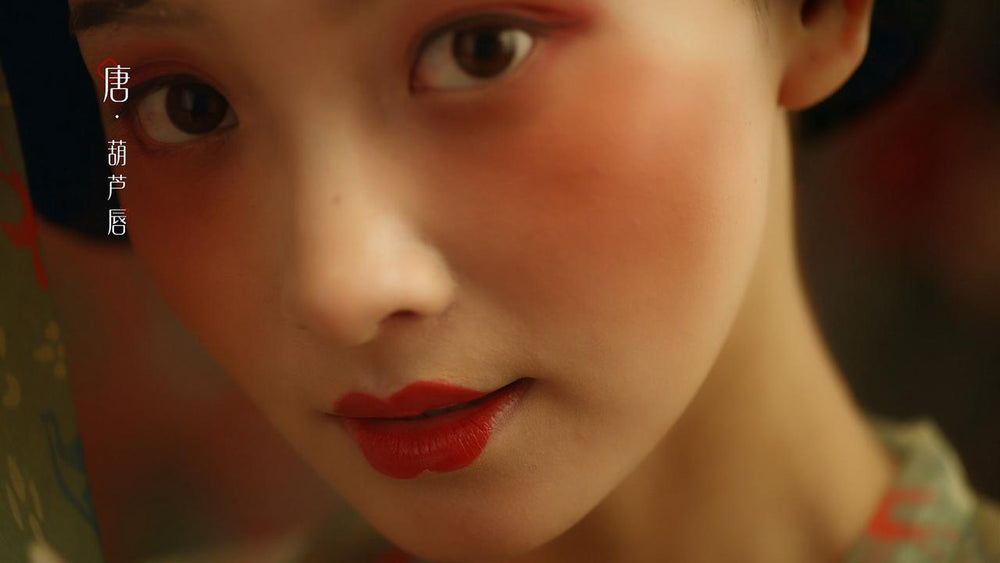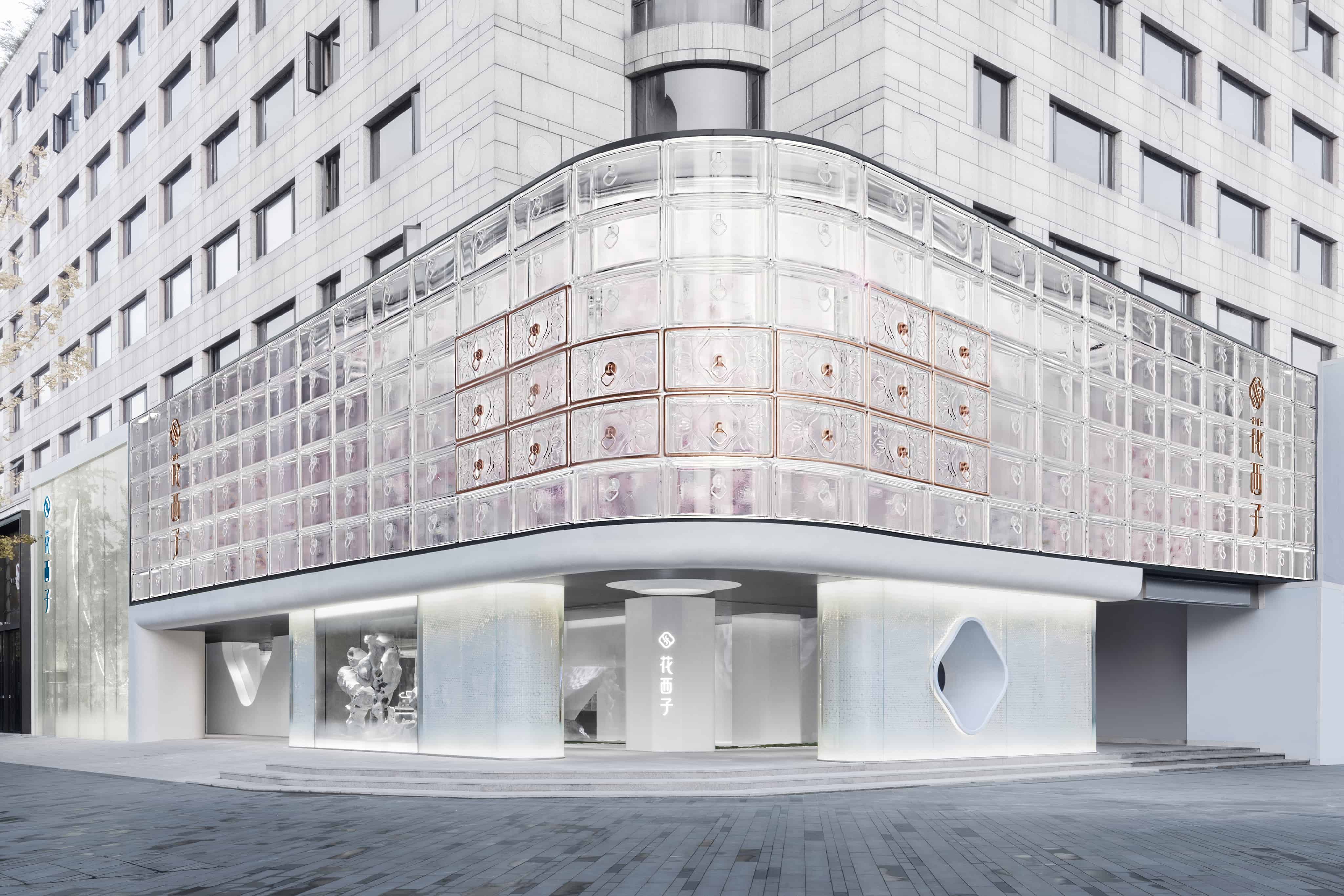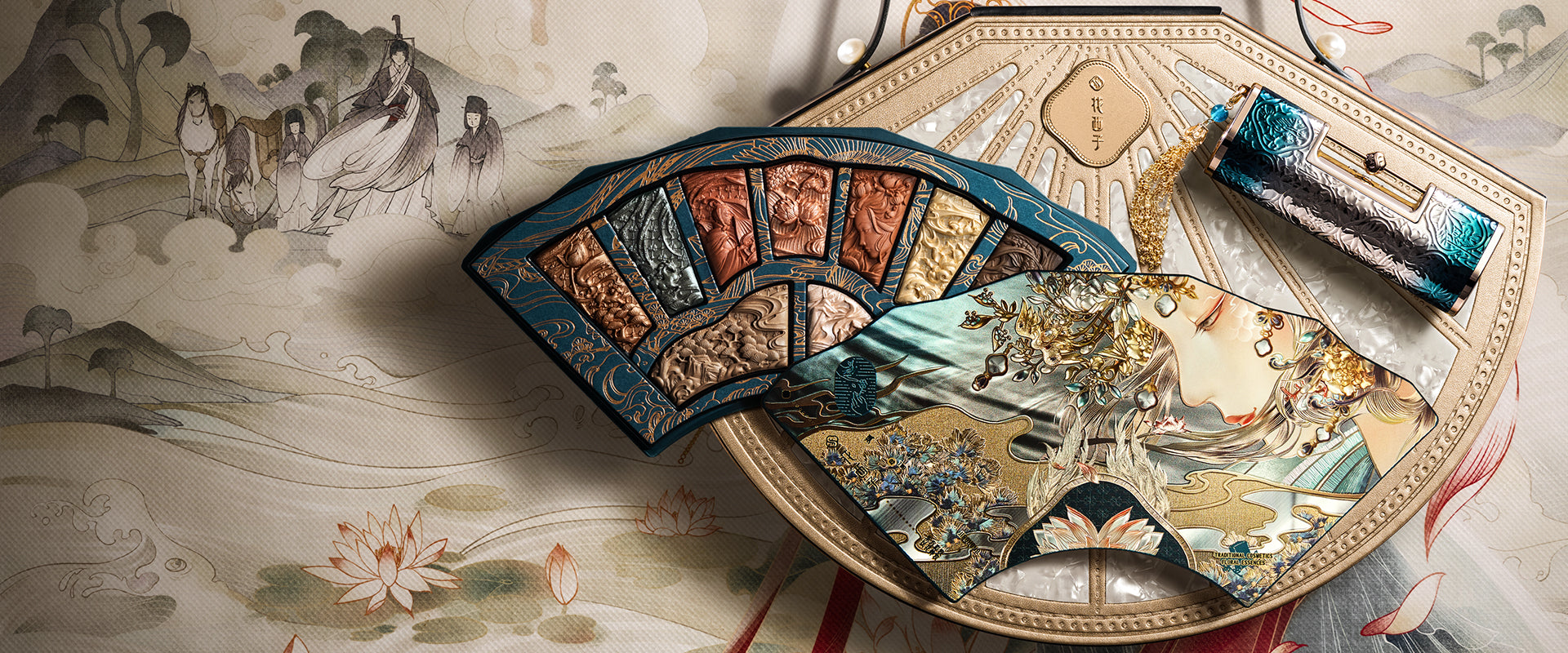
A Brief History of Chinese Makeup
Independent and dynamic. Mature, with confident and feminine allure.
Independent and Non-flattering Makeup and Mature Makeup—these powerful feminine energy-focused looks are the latest makeup sensations to make waves.
Hailing from social platforms Douyin, Bilibili, and Little Red Book, Chinese-style makeup looks are rising in popularity partly thanks to costume dramas like Story of Yanxi Palace, A Dream of Splendor, and more. Enthusiastically embraced by a rising generation of makeup lovers, ancient Chinese clothing (Hanfu) and makeup are ubiquitous sights on the streets of China.

Who is Chinese Makeup For?
Historically, Chinese makeup aimed to embody the gentle beauty and sweet-temperedness of women. Nowadays, it reflects the capabilities, independence, and confidence of the modern woman. An amalgamation of ancient and modern sensibilities, Chinese beauty welcomes all manner of makeup lover.
Inject confidence with a bold and slender brow. Evoke soft sweetness with soft under-eye makeup. Stand out from the crowd with a dot of pearlescent shine on your lip.
It's all about you—when the right mood strikes, combine your most beloved style with any one or more Chinese beauty techniques for a look entirely your own.
Chinese Makeup Through History

The Origins of Chinese Makeup
First discovered in the Readings of the Taiping Era, it began with a princess and plum blossom...
One day, Emperor Wu of Song's daughter, Princess Shou Yang, was strolling under some plum blossom trees. During her stroll, a stray petal landed on her forehead and wasn't washed away until three days later. Left with a beautiful peach blossom stain, people admired its beauty and began to emulate her accidental mark. Thus, Plum Blossom Makeup was born.
Beyond Plum Blossom Makeup's charming beginnings, ancient makeup looks include Slanted Red Makeup, White Makeup, Ocher Makeup, Goose Egg Yolk Makeup, Dimple Makeup, and more. Rich in diversity, style, and color, ancient Chinese makeup remains an ever-changing monument to beauty with a fascinating history.
Ancient Makeup Characteristics
History tells us that regardless of dynasty, women overwhelmingly favored long and slender brows, with one exception: The Tang Dynasty.


Tang Eyebrow Makeup
- Moth Wing Eyebrows (蛾翅眉)
- Bay Leaf Eyebrows (桂叶眉)
- Cloud Stroke Eyebrows (拂云眉)
- Branching Eyebrows(分梢眉)

As an astonishing revelation: eyebrows were the a la mode fascination of the ancients, not eyelids. Ancient Chinese makeup favored heavy brows and eye makeup was a gentle swathe of rouge applied under the eye. A healthy flush may be the vogue of today, but long ago, under eyes and cheeks were the key to a soft, feminine look.




A multitude of looks decorated ancient lips, but the overarching emphasis was on the petite form, rather than color. Concealed edges and a delicate, ruby-lipped, cherry-like mouth were the epitome of elegance.


The Unique Characteristics of Chinese Makeup
At the heart of Chinese makeup lies a fusion of culture and tradition. An aesthetic expression and spiritual embodiment of Chinese women's independence and confidence, Chinese makeup also plays an important part in our larger global culture. Today, modern Chinese makeup aims to honor its history, embrace modern aesthetics, and respect the plethora of beauty cultures across the country while welcoming a global perspective.
Chinese and Western makeup have long been an interplay of opposites: light and heavy, simple and bold. While Chinese makeup favors a small, delicate pout and relatively simple two-dimensional makeup, Western makeup is enamored with a fuller lip and a full three-dimensional glow. Yet despite the constant evolution of ancient makeup, modern Chinese makeup continues to blossom by weaving traditional aesthetics with contemporary styles, resulting in a nuanced and balanced vision of beauty.
In our neverending exploration of Chinese makeup's potential, we returned to our roots and scrutinized the present to find inspiration. To our delight, we discovered some surviving makeup techniques and styles that still resonate today, especially when paired with the cultural aesthetics of the Song Dynasty. Closely examined, these ancient makeup techniques are the clear ancestors of our modern ones, and are part of a universal invitation to Chinese beauty.
After deep research on ancient makeup, culture, and Asian facial features, we can finally unveil the three core elements of Chinese makeup:
- Unlike raised European and American-style eyebrows and Korean-style straight eyebrows, Chinese eyebrows distinguish themselves through a long, slender form, signifying gentleness and confidence.
- Ancient Chinese makeup emphasized eyebrow shape over eye looks. With a gentle veil of rouge on the cheeks and under the eyes, this style of makeup was aptly called "Under Eye Makeup."
- Ancient makeup focused on concealing the corners of the mouth for a minuscule cherry pout, so much so that the look was called "Cherry Lips."
These three elements are the foundations of modern Chinese makeup, each one corresponding to the confidence, elegance, and independence of Chinese women.
Chinese Makeup Techniques
Slender Eyebrows
Short eyebrows can lead to wider-looking temples and a naturally serious expression, while thick eyebrows can feel too heavy.




Eyebrow Length
Starting just before the tear duct and extending outward, the brow gently arches and becomes thinner and finer until the tail reaches its final point. A soft, long-lasting, elongated brow with depth and dimension.
How To
- Brush your brow hairs upward, then brush down the front and tail of your brows.
- Draw a fine line under your brows.
- Draw a line from the arch of your brow to the tail.
- Fill your brows with diagonal downward strokes.
- Brush through to blend.
Under Eye Makeup
Excessive color can lead to swollen, puffy-looking eyes. But when applied sparingly with the right technique, your cheekbones quickly become refined and your face gentle and soft.




How To
Focusing under the outer corner or outer half of the eye and the lid, apply a thin even layer of a light, warm shadow at a 45° downward angle. Your final look should be a soft fusion of eyeshadow and blush combined.
Cherry Lips
After much historical research and experimentation, we discovered two application techniques: Highlighting the Cupid's bow and Cherry Lips with concealed edges.


How To
Highlighting the Cupid’s Bow
- Apply a thin layer of lipstick to your entire lip.
- Apply a slightly darker shade on the inside of your lip with a brush and blend outward for an ombre effect.
- Highlight your Cupid's bow and the center lower portion of your bottom lip.
Cherry Lips with Concealed Eges
Use a brush to outline a smaller lip shape on the center of your lips, then fill in the shape.
Eight Elegances Makeup
Creative makeup inspired by the Eight Elegant Practices of traditional Chinese culture: playing the guqin, playing Go, calligraphy, painting, writing poetry, appreciating wine, admiring flowers, and drinking tea.


Calligraphy style makeup inspired by the Chinese idiom 蚕头燕尾 (cán tóu yàn wěi). This idiom describes calligraphy strokes, in that they should start heavy like a silkworm's head, and finish lightly and swiftly, like a swallow's tail.
24 Solar Terms of Makeup
The twenty-four solar terms, a list of twenty-four specific seasons in the Chinese calendar, accurately reflect the rhythmic changes of nature and play an extremely important role in people's daily lives. Each natural solar term gained its own distinct look.


A Never-Ending Journey
Despite historical records and modern definitions, Chinese makeup, like all beauty, is a nebulous, ever-changing force in flux. Rich and multitudinous, the three characteristics we've outlined are merely the results of our exploration and study of ancient culture. As admirers and lovers of beauty, we hope to push boundaries and uncover more profound treasures with continued study with experts, scholars, and beauty lovers.








2 comments
Thank you a lot ! All information is so interesting!
Tatyana Glebova
Dear Florasis,
Thank you for providing this very interesting history of Chinese makeup.
I used to teach history at university, and I tried to show my students how studying the history of objects could help us understand ordinary people of the past. You did a great job of showing how women used makeup to convey the great feminine virtue of gentleness.
By reading your web page I am learning about Chinese culture and history. I feel richer for the knowledge.
You have my best wishes for a peaceful and prosperous New Year.
Sincerely,
Maggy Shannon
Maggy Shannon
Leave a comment
This site is protected by hCaptcha and the hCaptcha Privacy Policy and Terms of Service apply.